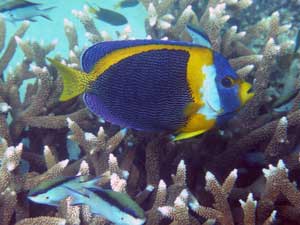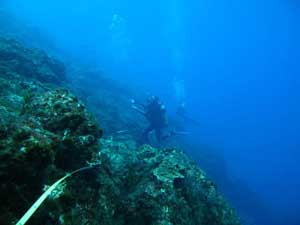Establishing a global baseline of marine biodiversity to assess impacts of human activity through the long term
Graham Edgar 教授(Institute for Marine and Antarctic Studies, University of Tasmania, Australia)
2012年5月22日(火)16:00~17:00


Managers dealing with threats to the marine environment face a fundamental problem in that ecological changes occur out of sight. Allocation of resources to where conservation intervention is most useful thereby becomes difficult and inefficient, and major losses of biodiversity go unnoticed. The Reef Life Survey program (RLS) addresses these problems through the training of a small network of skilled recreational divers in the technical knowledge needed to quantitatively survey reef fish, invertebrate and algal communities using transect methods. Because of increased cost-effectiveness, RLS data allow analyses based on consistent methodology to be undertaken at larger geographic and temporal scales than possible for scientific dive teams. To date, these data have been used to: (i) assess ecological benefits and improve planning of MPAs, (ii) describe the distribution of threatened species, and (iii) quantify community-level impacts of invasive species, fish farms, and urban pollution. The dataset now includes information from 27 countries and >1800 sites, with sufficient data available by Nov 2012 to allow the first global-scale assessments of inshore marine biodiversity using systematically-collected ecological data, and for relationships between ecological, environmental and socio-economic covariates to be quantified. Through the longer term, data will play a major role in tracking interactive effects of climate change and other stressors on coastal biodiversity.
